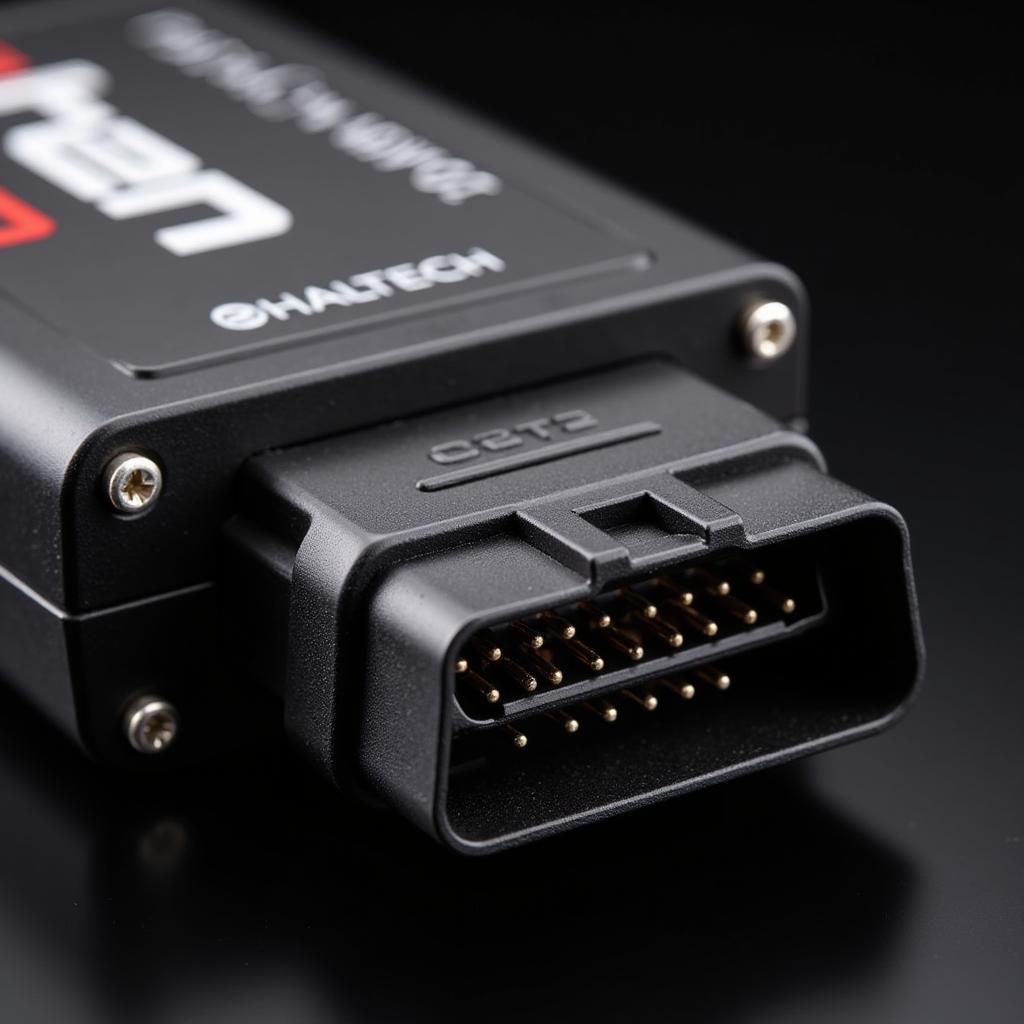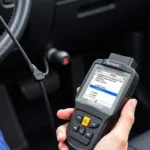Haltech engine management systems are renowned for their performance tuning capabilities, but what about their compliance with OBD2 standards? This is a critical question for many car enthusiasts, especially in regions with strict emission regulations. Let’s delve into the details of Haltech’s OBD2 compliance and how it impacts your vehicle.
Understanding OBD2 Compliance
OBD2, short for On-Board Diagnostics, is a standardized system that monitors your vehicle’s emissions and performance. When your car’s ECU detects a problem, it triggers a warning light on your dashboard and stores a specific code within the system’s memory. These codes can then be read by a mechanic or an OBD2 scanner to diagnose the issue.
Compliance with OBD2 regulations is mandatory for vehicles sold in many countries, ensuring they meet specific emissions standards throughout their lifespan.
Are Haltech ECUs OBD2 Compliant?
This is where things get a bit nuanced. Haltech offers a range of ECUs, and their OBD2 compliance depends on the specific model and its intended application.
-
Haltech Elite Series: Generally, the Elite series ECUs, designed for high-performance applications, offer comprehensive OBD2 compliance. They are equipped to monitor and report emissions-related data as required by OBD2 standards.
-
Haltech Platinum Series: The Platinum series, while powerful, may have limited OBD2 functionality depending on the specific model and how it’s installed in your vehicle.
-
Older Haltech Systems: Earlier Haltech models may not be fully OBD2 compliant, especially those designed for racing or off-road use where emissions regulations are less stringent.
Factors Affecting OBD2 Compliance
Several factors can influence the OBD2 compliance of your Haltech system:
-
ECU Model: As mentioned, the specific Haltech ECU model you choose will determine its level of OBD2 functionality.
-
Installation: Even if your Haltech ECU is capable of OBD2 compliance, the way it is installed in your vehicle can impact its functionality. Proper wiring and configuration are essential.
-
Vehicle Compatibility: The make, model, and year of your vehicle can also play a role. Older vehicles may have different OBD2 protocols that are not fully supported by certain Haltech systems.
Checking Your Haltech’s OBD2 Compliance
The best way to confirm your Haltech system’s OBD2 compliance is to consult the following resources:
- Haltech Website: Visit the official Haltech website and check the product specifications for your specific ECU model.
- Haltech Support: Contact Haltech’s technical support team for expert guidance on your system’s capabilities.
- Professional Installer: If you have doubts, consider consulting a qualified automotive electrician or a Haltech dealer with experience in OBD2 compliance.
Benefits of an OBD2 Compliant Haltech System
If you’re running a Haltech ECU or considering an upgrade, ensuring OBD2 compliance brings several advantages:
- Legal Compliance: Meet emissions regulations and avoid potential fines or inspection failures.
- Simplified Diagnostics: Quickly and easily identify engine problems using an OBD2 scanner.
- Improved Resale Value: Vehicles with functioning OBD2 systems are generally more desirable to buyers.
Conclusion
Haltech offers powerful engine management solutions, and their commitment to OBD2 compliance varies depending on the specific ECU model and its application. By understanding the factors involved and verifying your system’s capabilities, you can ensure legal compliance, enjoy simplified diagnostics, and unlock the full potential of your Haltech ECU.
Remember, consulting with Haltech directly or a qualified professional is always recommended for the most accurate and up-to-date information regarding your specific setup.


